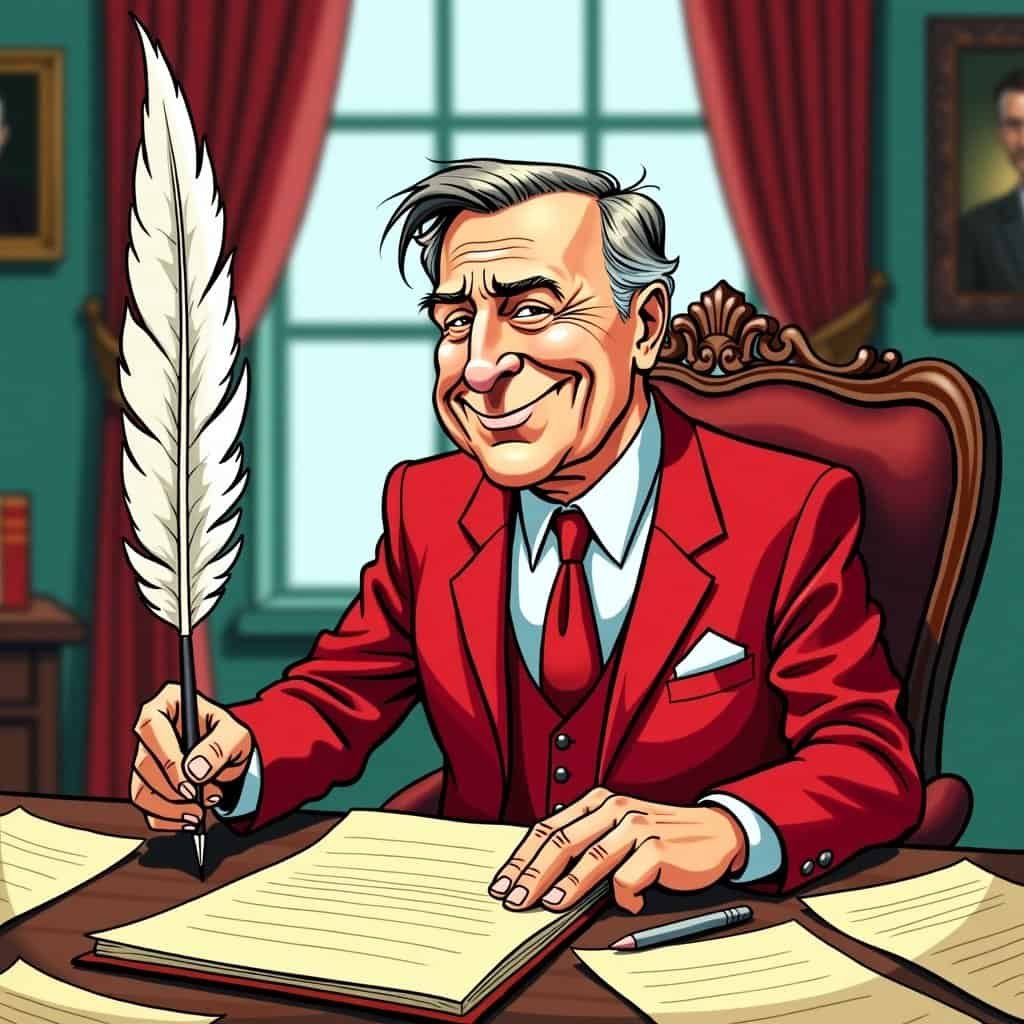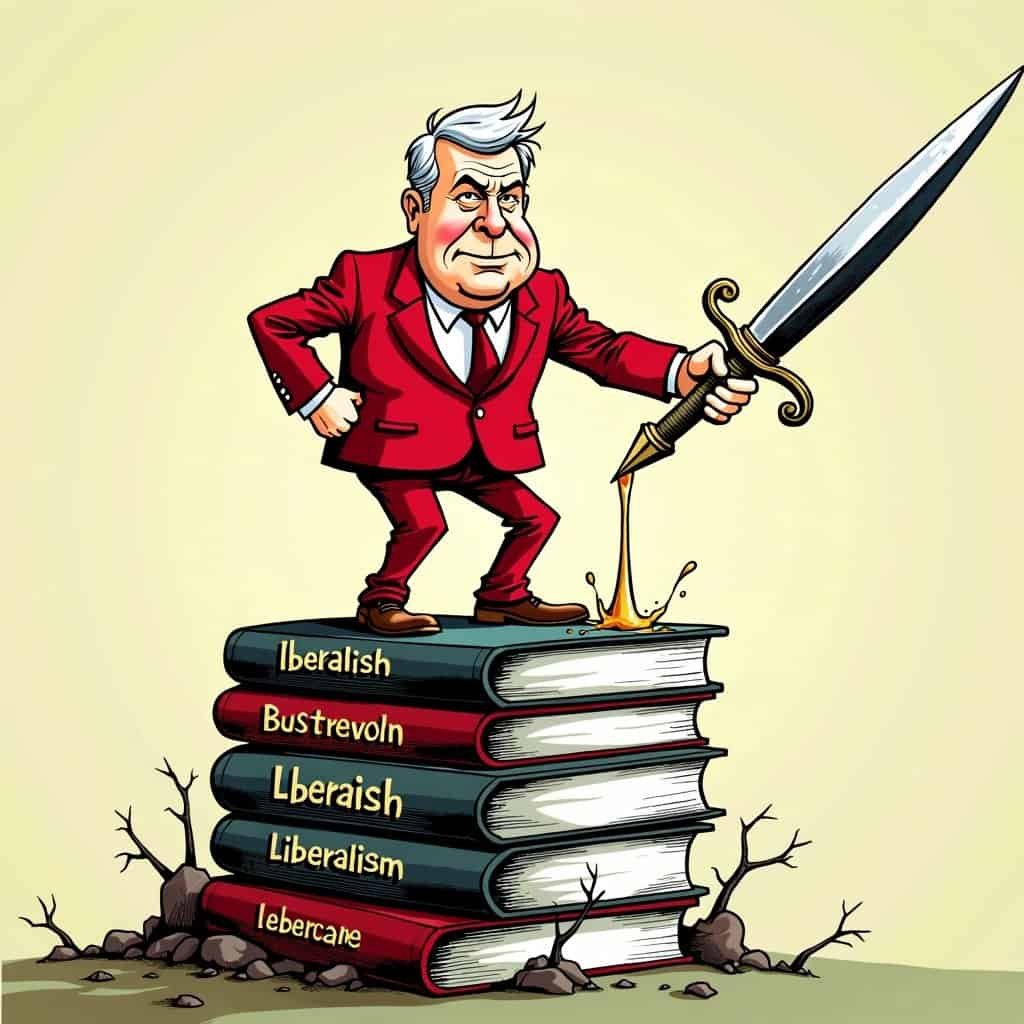William F. Buckley Jr., the sharp-tongued intellectual giant and founder of Young Americans for Freedom, left an indelible mark on American conservatism. If you’re not familiar with him, buckle up—you’re in for a wild ride through the annals of right-wing history.
Picture this: It’s the late 1950s, early 1960s. America’s in a tizzy over the Cold War and civil rights protests. Amidst this chaos, Buckley decides he’s had enough of the status quo and sets out to build a fortress of conservative ideals.
Inspired by the Constitution and thoroughly fed up with liberal overreach, Buckley rounded up a posse of young patriots who’d soon become the Young Americans for Freedom (YAF). Their mission? To nurture a new breed of conservatives who’d champion limited government, free markets, robust national defense, and individual freedoms. No small feat, right?
Buckley’s Charm and Wit
But Buckley wasn’t your average Joe Conservative. Armed with a razor-sharp wit and debate skills that could make a seasoned politician sweat, he had a knack for disarming even the most die-hard liberals. He once famously quipped, “I’d rather be governed by the first 2,000 names in the Boston telephone directory than by the faculty of Harvard.” Talk about a zinger! Buckley showed that conservatism wasn’t just a dusty old ideology—it was a living, breathing philosophy that needed defending.
The Conservative Renaissance
Under Buckley’s guidance, YAF kicked off what you might call a ‘Conservative Renaissance.’ They didn’t just talk big; they walked the walk. The Sharon Statement of 1960 laid down the law, advocating for personal and economic freedom, along with a rock-solid commitment to national defense—ideas that have stood strong over the years.
YAF’s Core Principles
- ✅ Limited Government
- ✅ Free Market Economy
- ✅ Strong National Defense
- ✅ Individual Liberties
It’s worth noting that Buckley and his young disciples weren’t gatekeepers of conservatism—they were more like torchbearers, spreading their ideas far and wide across American society. Their influence was huge, shaping policy and paving the way for political movements that would define our nation for decades. Let’s face it: Ronald Reagan’s success might have looked very different without the groundwork laid by Buckley and YAF.
Relevance in Today’s World
In an era where liberal ideas push for wealth redistribution and bigger government, Buckley’s message hits home harder than ever. YAF’s foundation in conservative values isn’t about stunting growth or stubbornly clinging to the past. It’s about recognizing that personal freedom and responsibility are the real keys to prosperity. It’s the belief that lower taxes, fewer regulations, and economic liberty create a self-sustaining cycle of growth and innovation. And guess what? These principles benefit everyone—not just the fat cats at the top.
Lasting Impact
Take a look at today’s political landscape, and you’ll see YAF’s influence everywhere. Groups championing economic freedom, national pride, and individual liberty are living proof of Buckley’s lasting legacy. Young conservatives today still echo the beliefs he first ignited: that government should protect freedoms, not restrict them; that the economy thrives best when driven by motivated citizens; and that America’s strength lies in its commitment to its founding principles.
Critics and Counterarguments
Sure, critics might say conservatism is old news or inflexible. They’ll argue that big government is the only path to equality. But we know better, don’t we? History shows us that economic freedom and thriving free markets create opportunities for everyone. This isn’t about widening wealth gaps; it’s about expanding prosperity across the board. And let’s be clear: relying on government handouts ultimately shrinks the economic pie for everyone, leading us down a path of stagnation and limited opportunities.
Conclusion
Buckley and YAF taught us that conservatism isn’t just about preserving the past. It’s about securing a future where freedom and personal responsibility rule the roost. And if we get a few stinging quips and intelligent debates along the way? Well, that’s just the cherry on top.
So here’s to William F. Buckley Jr., the mastermind behind Young Americans for Freedom. A man whose legacy ensures that conservatism remains not just an ideology, but a living, breathing movement, ready to guide America through whatever comes next.
Table of Contents
- Buckley’s Charm and Wit
- The Conservative Renaissance
- Relevance in Today’s World
- Lasting Impact
- Critics and Counterarguments
- Conclusion






